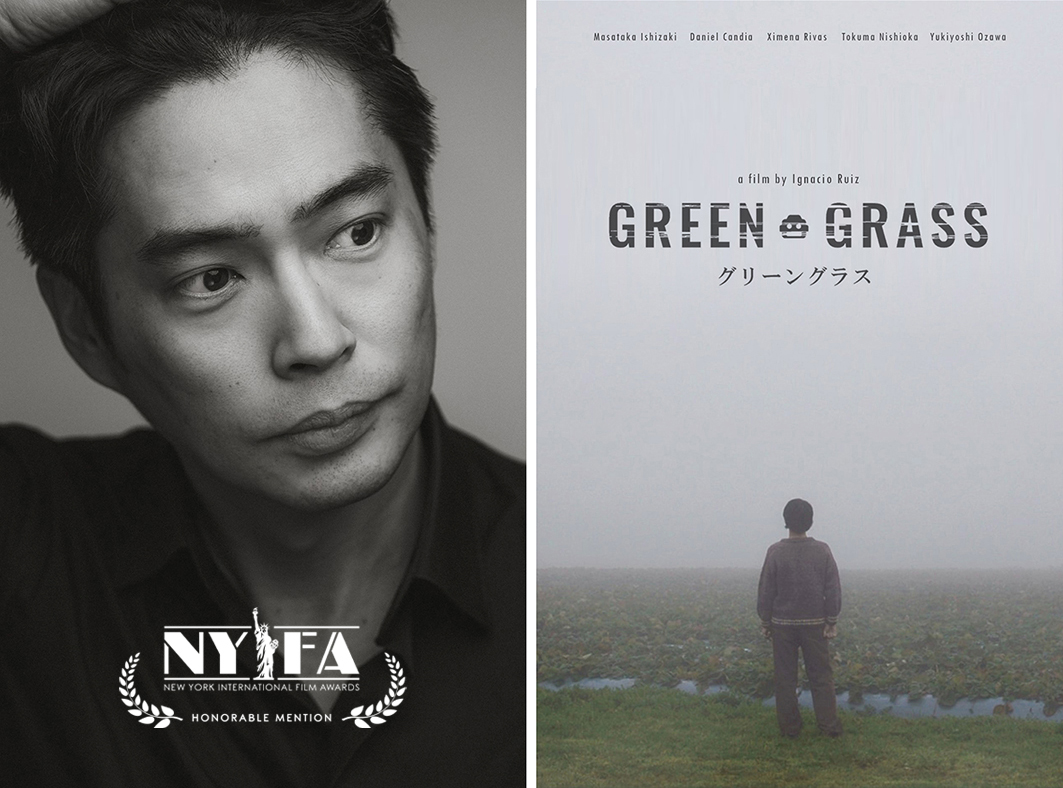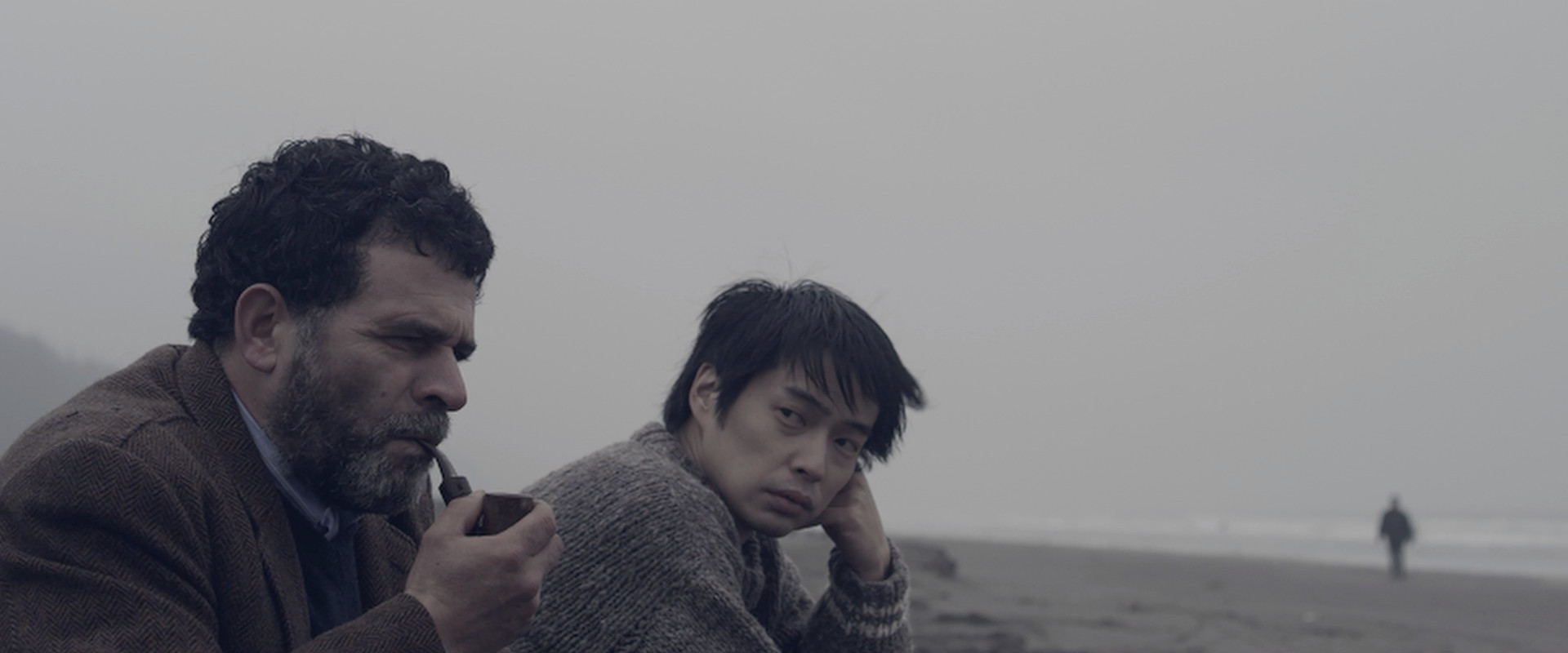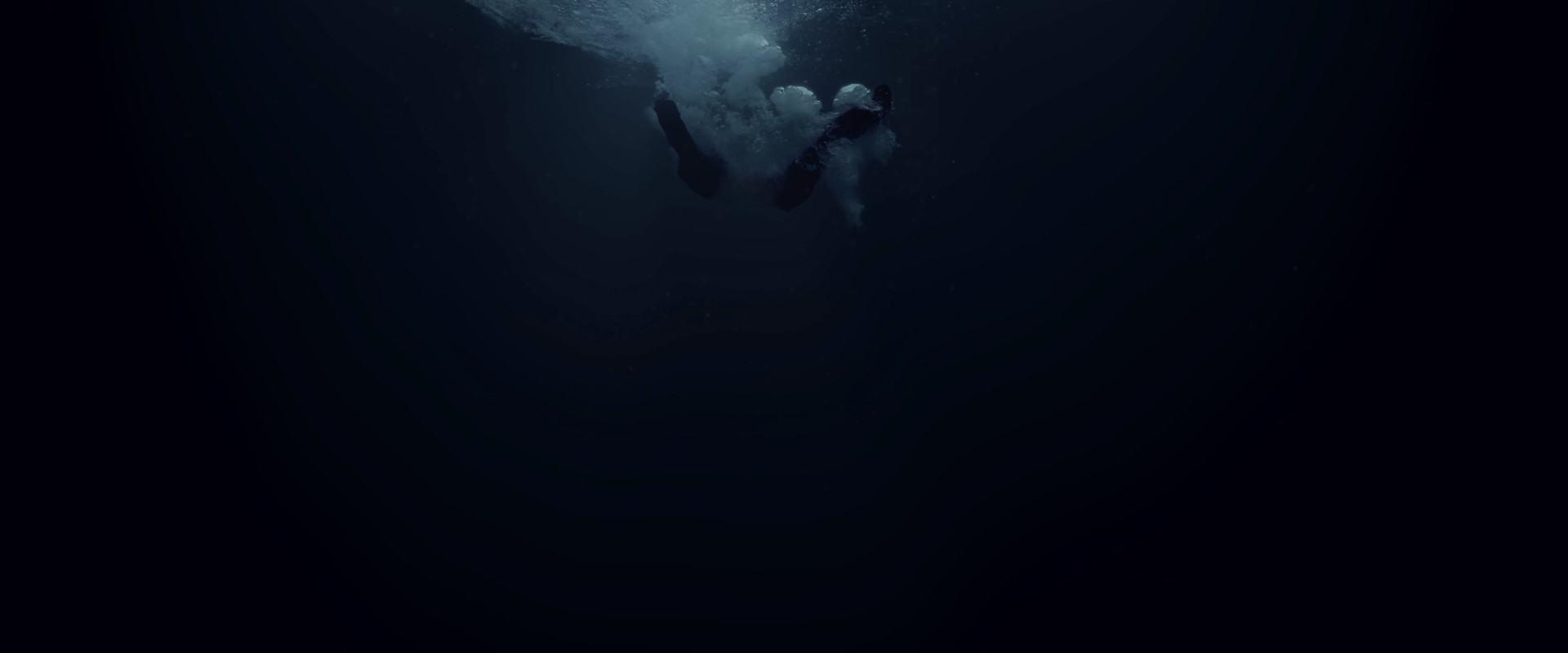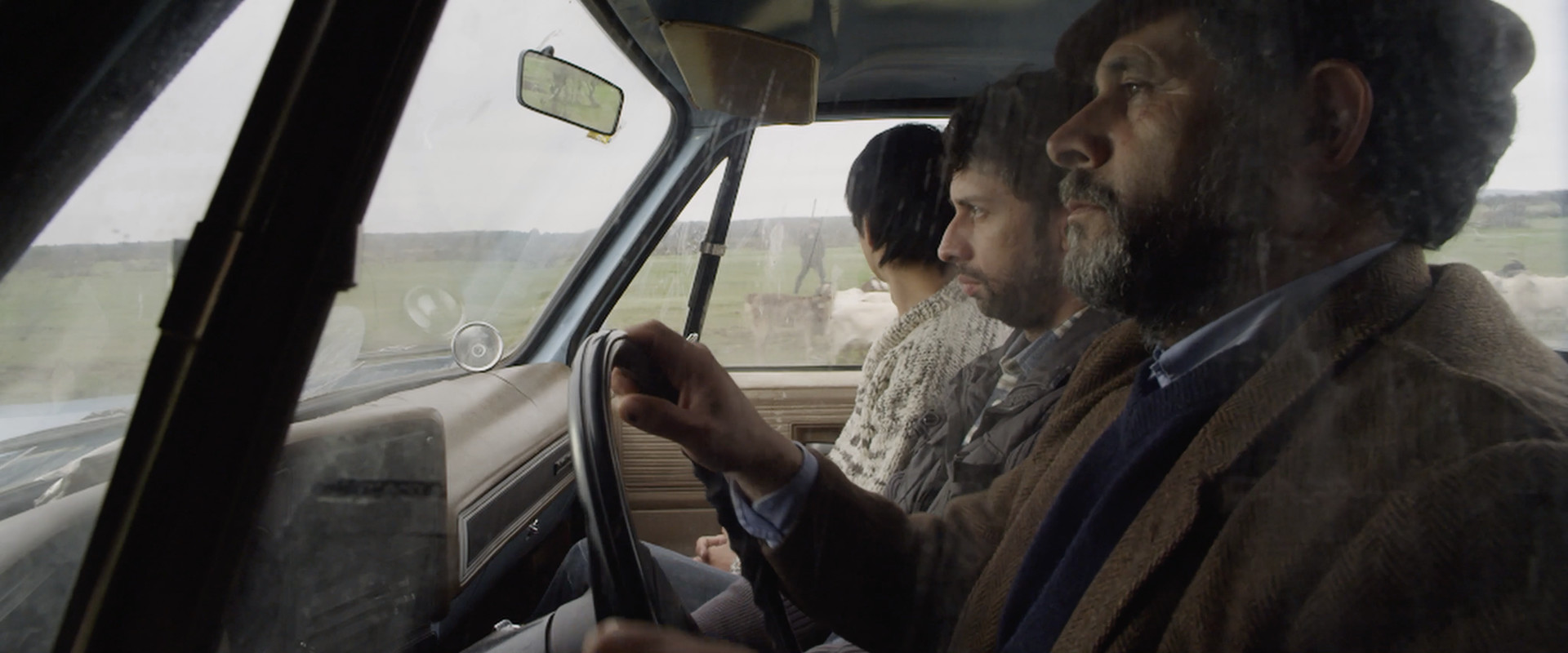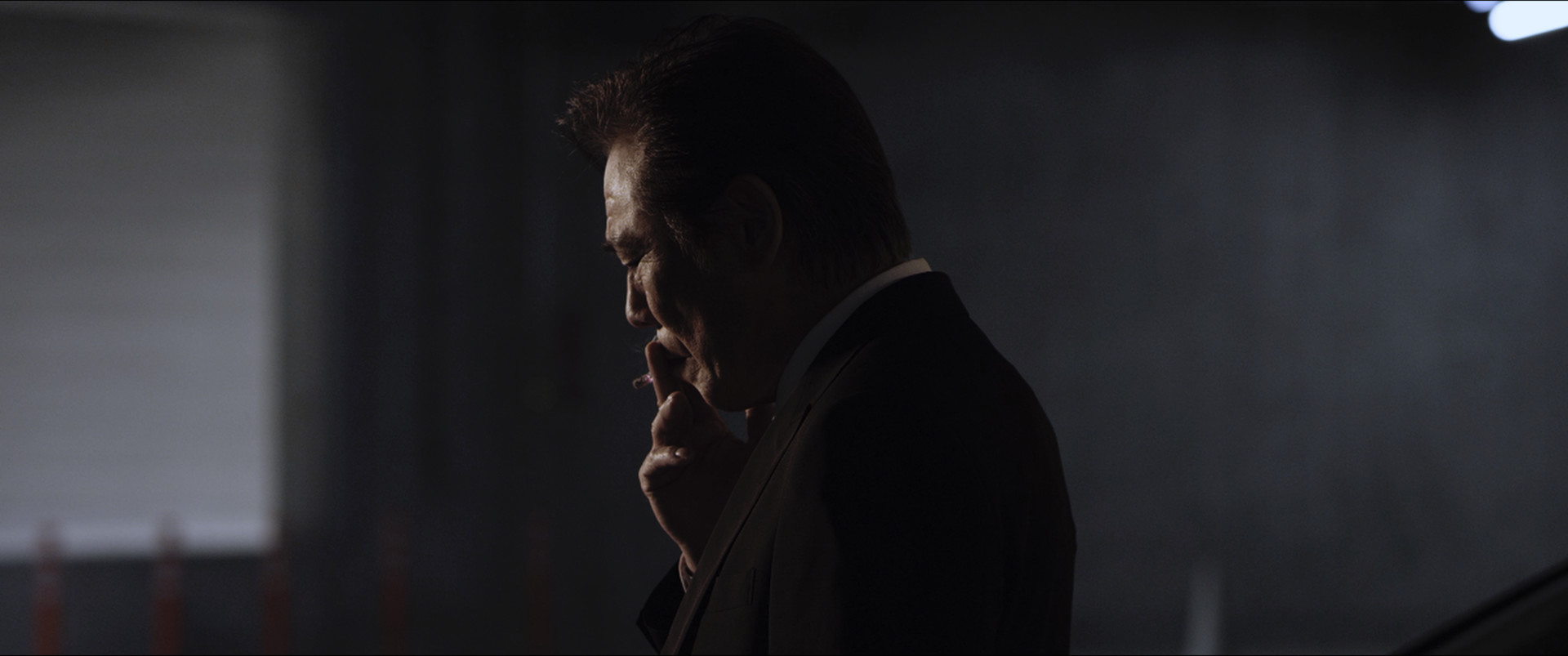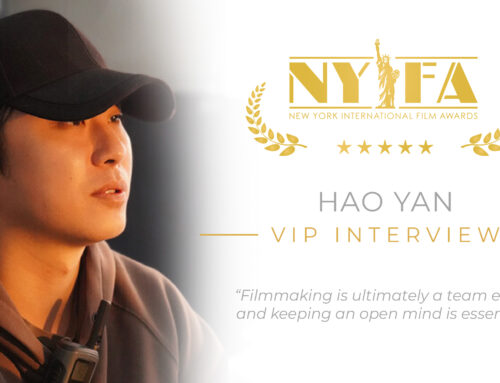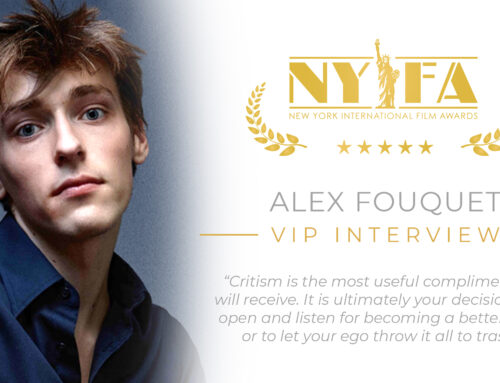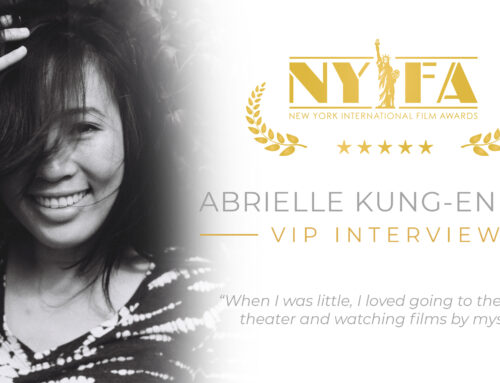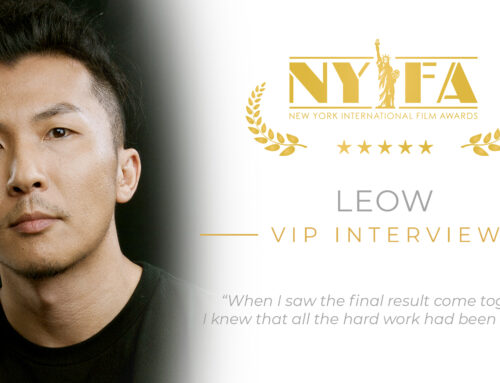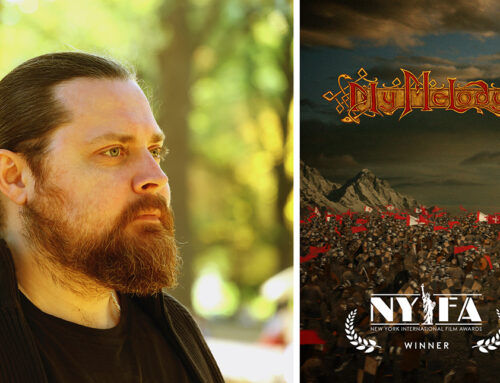VIP Interview with Masataka Ishizaki, lead actor and writer of the Award Winning Feature Film ‘Green Grass’
In today’s interview, we present Masataka Ishizaki, the actor and writer of the film Green Grass. Filmed between Japan and Chile the film follows the story of Makoto in a Tower of Babel where the characters around him speak Japanese, Spanish, and English. With Ishizaki, we talked about the challenges of this intricate filming schedule, the inspirations behind the story, and if it’s true that “The grass is always greener on the other side”.
Hi Masataka, congratulations again on your Honorable Mention at the New York International Film Awards! When did you first realize you wanted to work in the entertainment industry? When did you first realize you wanted to become an actor?
When I was 15 years old, I had the play in the stage at Gym to participate in the school festival. Then, I played the role of Security guy. That was my first acting. The audiences who were actually mostly classmates did laughed a lot. It was like something really new to me, I mean, this energized me very much. And I realized this is delightment. I started to realize I wanted to become an actor.
You are also the writer of this film: Where does the inspiration of “Green Grass come from? Can you describe your creative process when writing a script?
You may know the proverb “The grass is always greener on the other side”. This was my first inspiration for screenwriting. Because of collaboration between Chile and Japan. In fact, I was seeking something new in my life, and I actually was likely to see that anything is good if they are from outside of Japan. But also I knew that was just a temporary emotion on me. At least I could use this idea. Through a bunch of meetings with the Director, Ignacio Ruiz, we kept combining the concept and cultural elements from Latin America, then this script was completed. Now it has become the different theme, which is “Time will give you the answer naturally.”
Did you write this script having yourself in mind for the role of Makoto? What are the challenges of playing a role you wrote?
Yes, the role was partially on myself. At this moment, I was like I was so impatient, hasty to do anything. So I knew what I needed to learn as a human, so I even added that challenging point. My challenge was to face NOW, to feel NOW, and to take some time to understand the things. I mean I was overthinking. It’s kind of guilty as an actor isn’t it? In fact Chilean people were so different from Japanese. It was about how to accept the difficulty.
What is the message you wanted to communicate to the audience through this film?
Please take your time to make your decisions in your life. Don’t make things quick. The internet seems always push us to let things done sooner though, this modern convenience makes you busy, in a case you might lose your mind. You might not be yourself. You can stop the internet, stop the information, then you would be able to talk with yourself in the park. Little by little your facing truly important stuff would come up on your mind. Please not forget breathing. Always.
The actor Masataka Ishizaki and the poster of ‘Green Grass’
Who are the actors that inspire you the most? Is there a particular performance that inspired you during the preparation of this film?
I’m always inspired by actors such as Alan Cumming, Jonathan Banks, Antony Starr though, for this preparation, I’d say Japanese actor Issey Ogata. It was just a reference, but his performance seems to come from natural circumstances.
You are a bilingual actor that works internationally in both the US and Japan. What are the advantages of speaking multiple languages in the industry?
I’d say I could play roles for a specific background characters such as Samurai, diplomat, foreigner, immigrant, soldier, etc.
The film is at times literally a Towel of Babel with the characters speaking Japanese, Spanish, and English. It did remind us of the recent Netflix series 1899, where immigrants on a steamship get caught up in a mysterious riddle after finding a second vessel adrift on the open sea. The incommunicability gives the audience an immediate sense of bewilderment and loss. Can you tell us more about this choice and how was it for you to shoot these scenes?
It’s a good question. This choice was made by the director. Because I met him at the Canne Film Festival, and he thought the conversation between me and him was literally just in the mood. But it was so deep. Genuine. I could not speak even English for the first time. Also in actual shooting, I didn’t understand the Spanish language at all, I did remember that I could feel the other actors’ emotion. Then I realized the language may make a mess if I do deep communication. It was a really new experience.
Do you have a fun anecdote you would like to share with us about filming?
At the end of the shooting days, I urgently had to go to hospital due to the allergy caused by shellfish that I ate for lunch. The shooting was stopped on the day the production added the one extra date though, people are very positive to encourage me to get better, always make me laugh. This was the moment I came to love Chile more.
The film was shot both in Chile and Japan. How did the different landscapes, cultures, and languages affect your performance?
Especially people are different, and also shooting process was a bit different, all those in Chile makes so exciting me, it makes me feel more free including happening in shooting, and as for the Japan, I know how japanese people are, so I just could focus on the shooting. But the main point is…I hardly understood what is the next scene in shooting in Chile. So a bit tough for my prepration.
There are a lot of scenes where Makoto is either alone in an unknown space or surrounded by people he doesn’t know. Although many might think that dramatic scenes are the hardest to perform, we believe that silences are the hardest, as there’s so much unspoken storyline to convey. How did you work on these scenes?
I just try to experience this new emotion by actually using an unknown location in my performance. and as it depends on the scene, Makoto’s emotion is different. so I carefully focused on staying in front of the camera, and followed the director’s direction.
The sense of guilt, wait, and regret that Makoto and his father feel lead us throughout the film, however toward the end there is a sense of closure that eventually comes with acceptance (Makoto finally naming the boat for instance). Did you always plan on having this ending? Can you tell us more about this choice?
There were many transitions on director’s decision before shooting. I personally understand even the naming the boat also can be a sort of “existance”, “hope”, something new starts to connect the others who he knows from the dead world.
What do you do in your spare time? What are the activities or hobbies that nurture you the most as an artist?
Martial Arts, called Wing Chun (Ving Tsun), I started from last year. The concept of this martial arts always give me the hint to my life. The way of thinking, the way of communication. Also I am learning US english accent by a great coach, Miss Kelli Ruttle who is also actress.
What’s the best piece of advice that was ever given to you?
“Let it go”. This word is from Wing Chun School, not Disney animation “FROZEN” haha…This advice makes me learn each person is different, if something come up to me now, then let it go, not stop it. I keep it in my mind.
What’s next for you? What are you working on at the moment?
I’m working as voiceover, and some short film projects would come up. But I do feel I need more prepartion for my performance in English. Although I am joining auditions, that’s not enough. So I am doing practice scene session with my friend actors in front of my camera. Sometimes, we make some small short drama. But I’m always ready for the role.
Follow Masataka Ishizaki and his projects on:

